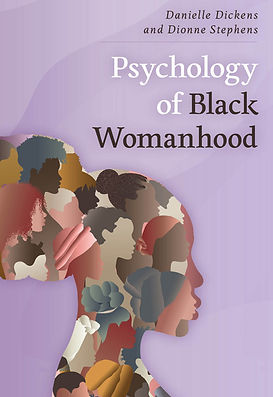Our Book's Purpose
Mainstream psychology has historically overlooked the intersectional identities and lived experiences of Black women in the United States. In today’s evolving social and political climate, understanding these experiences from a psychological perspective has become increasingly critical—both in academic research and public discourse.
Currently, there is no single textbook in the field that comprehensively explores the sociohistorical experiences of diverse Black women and how these experiences shape their psychological well-being. Even when textbooks adopt an intersectional framework, they often remain rooted in Eurocentric perspectives and offer minimal discussion of the unique psychological experiences of women of color, including Black women.

The Psychology of Black Womanhood fills these gaps by offering a thorough and accessible examination of interdisciplinary research on Black women’s lives in the United States. Grounded in empirical literature yet presented in an engaging and easy-to-understand format, this text is highly relevant to the contemporary issues affecting Black women. It centers the intersections of Black women’s identities, providing readers with critical insights, inclusive diversity, and cultural awareness.
Through applied research, thought-provoking activities, and real-world examples, readers are encouraged to think critically and distinguish fact from fiction. Whether the reader identifies as Black, female, a psychology student, or a member of the broader community, The Psychology of Black Womanhood delivers a systematic, comprehensive, and well-organized exploration of key issues impacting Black women’s lives in the U.S.
This book is an ideal resource for courses such as Psychology of Black Women, Psychology of Women, Black Women’s Experiences, and Psychology of Women of Color, as well as for interdisciplinary studies. Researchers, clinicians, educators, employers, and policymakers will find this text invaluable for understanding and addressing the nuanced experiences of Black women. Additionally, book clubs and reading groups will appreciate the guided chapter questions designed to foster meaningful discussion.